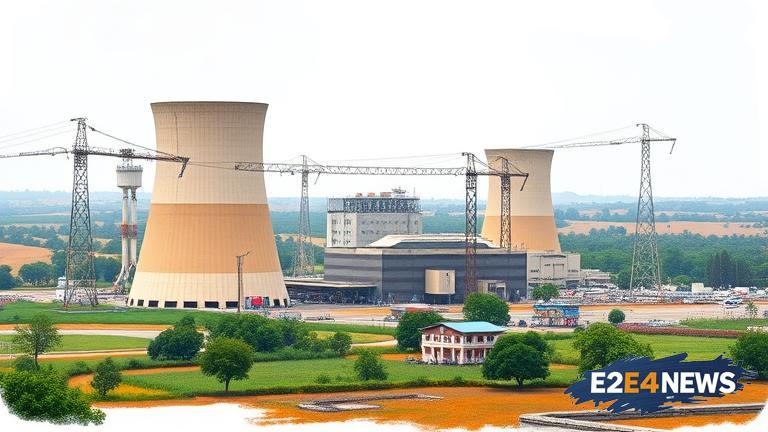The Indian nuclear industry has been facing significant challenges in recent years, with high project costs and regulatory hurdles being major concerns. The industry is now urging the government to revise the conditions for nuclear projects to make them more viable. This comes as the government has been pushing for increased investment in the nuclear sector, with a focus on reducing the country’s reliance on fossil fuels. However, the industry argues that the current conditions for nuclear projects are not conducive to investment, citing high costs and regulatory hurdles as major deterrents. The Nuclear Power Corporation of India (NPCIL) has been struggling to attract investors for its projects, with many citing the high costs and risks associated with nuclear power. The industry is seeking revisions to the conditions for nuclear projects, including changes to the tariff structure and the provision of subsidies. The government has been considering these demands, with the Ministry of New and Renewable Energy (MNRE) holding consultations with industry stakeholders. The MNRE has also been exploring options for reducing the costs associated with nuclear power, including the use of new technologies and the development of smaller, more efficient reactors. Despite these efforts, the industry remains concerned about the viability of nuclear projects in India, citing the high costs and risks associated with the technology. The World Nuclear Association has estimated that the cost of building a new nuclear reactor in India can range from $4,000 to $6,000 per kilowatt, making it one of the most expensive forms of energy production. The industry is also concerned about the regulatory hurdles facing nuclear projects in India, with the Atomic Energy Regulatory Board (AERB) being criticized for its slow approval process. The AERB has been working to streamline its approval process, but the industry argues that more needs to be done to reduce the regulatory burden on nuclear projects. The government has been pushing for increased investment in the nuclear sector, with a focus on reducing the country’s reliance on fossil fuels. However, the industry argues that this will require significant changes to the conditions for nuclear projects, including revisions to the tariff structure and the provision of subsidies. The industry is also seeking greater clarity on the government’s policies for the nuclear sector, including its plans for the development of new reactors and the disposal of nuclear waste. The government has been working to develop a new nuclear policy, but the industry argues that this needs to be finalized as soon as possible to provide clarity and certainty for investors. The nuclear industry in India is also facing challenges related to public perception, with many communities expressing concerns about the safety of nuclear power. The industry is working to address these concerns, with a focus on educating the public about the benefits and risks of nuclear power. Despite these challenges, the industry remains optimistic about the potential for nuclear power in India, citing its ability to provide clean and reliable energy. The government has set a target of generating 63,000 megawatts of nuclear power by 2032, and the industry is working to meet this target. However, this will require significant investment and changes to the conditions for nuclear projects, including revisions to the tariff structure and the provision of subsidies. The industry is urging the government to take a more proactive approach to supporting the nuclear sector, including the provision of subsidies and other forms of support. The government has been considering these demands, and it is likely that we will see significant changes to the conditions for nuclear projects in the coming months. The nuclear industry in India is at a critical juncture, and it remains to be seen whether the government will be able to provide the support needed to make nuclear projects viable. The industry is hopeful that the government will take a more proactive approach to supporting the nuclear sector, and that we will see significant investment in the coming years.
